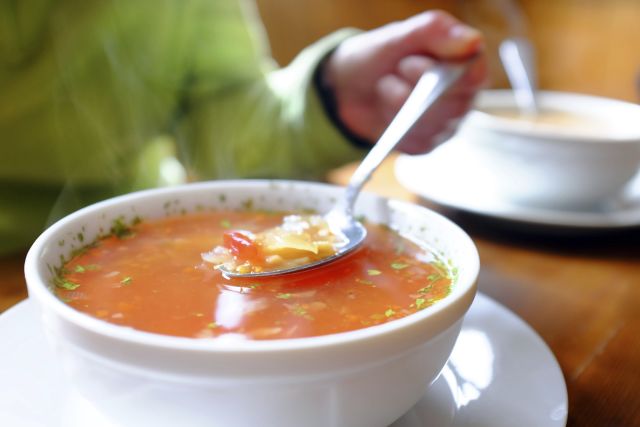Updated on October 29, 2024.
When winter arrives each year, so does the temptation to indulge in warm comfort foods and hot, creamy drinks. But even though your metabolism speeds up a bit at this time of year to help keep your body warm, it’s worth remembering that you can't eat much more than you did in summer without gaining a few pounds.
Here's how to satisfy your instinct to stay warm and nourished while remaining mindful of your weight.
Know what really keeps you full and warm
Your body creates a little more heat when digesting protein than it does when digesting fats or carbohydrates. And protein is the most filling of the macronutrients, meaning it's good at quelling your appetite.
Although winter cuisine is often heavy on hams, roasts, and gravy-laden stews, you can still get the benefit of protein by opting for leaner cuts. Opt for lean chicken and turkey breast, canned tuna, fish, and shellfish. Not a meat eater? Add black beans, kidney beans, chickpeas, or lentils to your meals. A multi-bean chili can be just as filling as chili con carne, but with less fat and fewer calories.
Stick to hot foods
Eating cold foods on a cold day is no way to feel cozy. So, stick with hot-but-calorie-conscious versions of your go-to foods when it’s cold out.
Try hot oatmeal instead of cold cereal for breakfast. Have a hearty bean soup instead of a sandwich at lunch. You can even cook your salad ingredients: In the last few minutes before serving stews, soups, casseroles, or scrambled eggs, stir in some winter greens, like spinach, kale, Swiss chard, or collard greens for an extra dose of fiber and phytonutrients.
Don't count on hot toddies
A mug of that brandy-splashed winter standard may taste good and feel cozy cupped between your hands, but it can backfire if you’re watching your weight. Many alcoholic beverages are high in calories. In addition, people often make poorer food choices when they’ve been drinking. Stick with a nice hot cider or chai tea instead.
Spice things up
Thanks to the capsaicin they contain, hot chili peppers raise your core temperature and increase metabolism. That’s in addition to their other health benefits, which include anti-inflammatory and antioxidant properties. Taco night by the fire, anyone?







